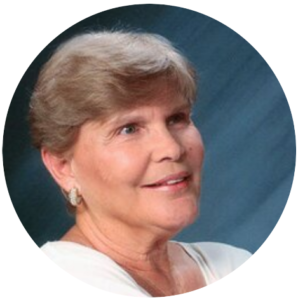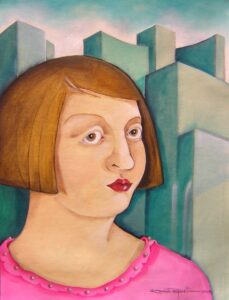
Ramón Unzueta Paints Everyday Life
 By Elena Iglesias
By Elena Iglesias
Especial / El Nuevo Herald

Ramón Unzueta, who has lived in the Canary Islands for 17 years, travels to Miami every year to exhibit his work. “This city is my sister Enaida, my friends, my gallery, but it is also a little the aroma of Cuba. I find my roots again and recharge my batteries to keep painting until I return.”

According to the artist, in painting one is always learning. One must study and devote many hours and all of one’s attention. “It’s like ballet. You can’t go to sleep. Only working do you get results. I believe in work more than in inspiration. Each time I am more in love with what I do and this is reflected in my work. I am very demanding, I don’t want to disappoint anyone, starting with me. I work a lot at dawn. Silence helps me concentrate. The only one who can interrupt me is my dog, Toto, whom I adore,” he assures.
Urbanitas, his current exhibition, is focused on the concerns of the people in a totally depersonalized city. Unzueta wanted to paint the quotidian things that happen to everyone: the responsibility of going to work; the search for love; the chill of loneliness; the hope of the conquest; the encounter with love; and the arrival of placidity. “I have done a series with different people that had remained in my retina: the woman who goes off to work in a hurry and puts on her makeup in the car. The one who has all kinds of worries: bringing up her children, the husband’s abandonment, the mortgage payment. The boy who feels more secure and no longer feels a chill in his soul. The young woman, hopeful and waiting for love; the one who is toasting because she already found it. The young people who have fun on Saturday without limits; and the lady, more centered and tranquil, placidly enjoying Sunday,” he explains.
Even though the urban profile of these works could be of any city, it has some buildings that the artist has tried to rescue, like Havana’s Focsa, with its horseshoe shape. He has also played with time and with the sky, and the characters are somewhat more specific in relation to those he painted before. “The portrayal is closer to reality. I play with the figure a bit, distorting it. Here, I’ve tried to portray the real measurements of the person. I haven’t done very elongated necks or placed eyes where they don’t belong. I’ve tried to make them a bit like photos. The change in the figures is determined by the work itself. It’s an unconscious thing. The theme leads you, you don’t control it one hundred percent,” he admits.

Last September, the artist presented a documentary in La Casa de las Américas in Paris, done by Ricardo Vega, the husband of Zoé Valdés. “Ricardo has a series of documentaries titled ‘A painter, a painting’. The painter doesn’t have to speak, just work on the canvas while he films the creative process. I did ‘Preciosa y el aire de Lorca’. When the documentary was going to be shown, I begged Zoé to not make me speak, because I am very shy, and she introduced it. When we played as children in Cuba, it was the same thing, she would do everything and I would follow.”
The writer and Unzueta, who have been friends for 40 years, want to continue with their series of stories dedicated to Luna, Zoé’s daughter, which he illustrates. “They are published in Spain and in France, ‘Los aretes de la Luna’and‘Luna en el cafetal’. Now we want to do ‘Luna en Nueva York”, but the project is still up in the air, because neither of us has the time,” he makes clear.
Unzueta is no longer worried about having his own style. “I read that Picasso had said ‘the painter should not have a style’ and that was a great relief. What one must do is paint, try to do it better each time, even if you never reach perfection. Before this exhibition, I had worked a lot on the subject of men, but that is going to change. Also, I want to work with live models. Following this new trend, I started by doing a self-portrait, something which is very disconcerting, because you discover a lot of things in you that you didn’t know about, both virtues and flaws.


